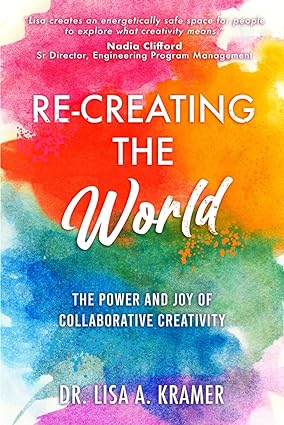Creativity and Leadership
What makes a leader? What is leadership?
I've been pondering these questions a lot lately.
For you see, for some reason I don't seem to fit other people's definition of leadership. Sure, I have:
- taken the lead throughout my life
- managed box offices and volunteers for large events
- started companies
- lead classrooms and programs
- directed artistic teams to full-scaled productions
- trained new teachers
- taken leadership positions on boards and committees
Yet still, with all that, the word "leader" seems to somehow slide around me rather than attaching to me. It's a label that does not stick.
An article by Jacob Morgan on The Chief Learning Officer asks the same questions:
As part of the research for my new book, “The Future Leader,” I interviewed more than 140 CEOs around the world and asked them each to define leadership. Many people struggled or had to pause to think because it’s a word we use so frequently without really defining.We take the concept of leadership for granted and assume that we all know what leadership is and what a great leader looks like.
Morgan, Jacob. "What is leadership, and who is a leader?" Chief Learning Officer, January 6 2020, https://www.chieflearningofficer.com/2020/01/06/what-is-leadership-and-who-is-a-leader/. Accessed 17 February 2021.
My own definition of what makes a good leader has its roots in my love of creativity and collaboration. For me, the best leaders have always been those who keep an eye on the bigger picture, while allowing space for exploration, process, ideas, experiments . . . and yes, even failure. They respect other people's time, and opinions. They listen, question, admit mistakes, and are not infallible. They have high expectations, but are also supportive and flexible when surprises inevitably happen. They know when to be stern, when to be strict, when to say no, and when to trust their team.
I have come to realize leadership means different things to different people.
In the article, "Creativity and the Role of the Leader" published by the Harvard Business Review, the authors explain the discussions and discoveries made at a two-day colloquium put on by Harvard Business School that included business leaders and "nearly 100 people who were deeply concerned with the workings of creativity in organizations". They write:
Over those two days, we saw a new agenda for business leadership begin to take shape. At first, we heard skepticism that creativity should be managed at all. Intuit cofounder Scott Cook, for example, wondered whether management was “a net positive or a net negative” for creativity. “If there is a bottleneck in organizational creativity,” he asked, “might it be at the top of the bottle?” By the colloquium’s end, however, most attendees agreed that there is a role for management in the creative process; it is just different from what the traditional work of management might suggest.
Amabile, Theresa M. and Mukti Khaire. "Creativity and the Role of the Leader." Harvard Business Review, October 2008, https://hbr.org/2008/10/creativity-and-the-role-of-the-leader. Accessed 17 February 2021.
In everything I do, my approach to leadership has always been non-traditional, collaborative, creative, and playful. I look at the big picture. I set goals. I plan and schedule with meticulous awareness of deadlines, steps needed for success, people's time, and the needs of a project. I hold high expectations for my team (students, cast, collaborators, workers--fill in the appropriate noun) and yet am willing to bend and flex as necessary. And, when needed, I solve problems, step in with a strict voice, and say no.
Based on my definition of leadership, I am a leader. The difference lies in truly valuing joy in the process.
I am just beginning to understand the connections between creativity, play, collaboration, and leadership. I believe this is the future of work, of business, and of allowing for a society that truly values the contributions of everyone.
I'm curious to see where the journey leads.
